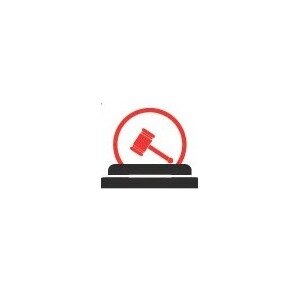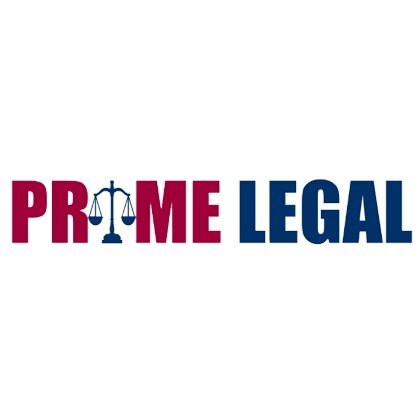Best Brokerage Lawyers in Nepal
Share your needs with us, get contacted by law firms.
Free. Takes 2 min.
Free Guide to Hiring a Real Estate Lawyer
Or refine your search by selecting a city:
List of the best lawyers in Nepal
About Brokerage Law in Nepal
Brokerage in Nepal involves the act of arranging transactions between a buyer and a seller for a commission when the deal is executed. This field can span various sectors, including real estate, finance, and trade. Brokerage law governs the responsibilities, rights, and duties of brokers in ensuring fair practice, transparency, and compliance with the regulatory standards in Nepal. As the economy grows and more international trade and investment occur, brokerage has become an important field, requiring legal oversight to protect all parties involved.
Why You May Need a Lawyer
There are several situations where individuals and businesses in Nepal might require legal advice regarding brokerage activities:
- Ensuring compliance with the laws and regulations governing brokers, especially for new brokerages.
- Resolving disputes between brokers and clients, which may involve breach of contract or dissatisfaction with services rendered.
- Understanding the implications of international brokerage activities and ensuring adherence to cross-border compliance.
- Handling cases of fraud or misrepresentation by a broker or brokerage firm.
- Advising on forming or structuring brokerage businesses legally to protect personal and corporate assets.
Local Laws Overview
Brokerage activities in Nepal are regulated by various laws depending on the sector in which the brokerage operates. Some key aspects relevant to brokerage law include:
- Registration and Licensing: Brokers are required to register and obtain necessary licenses from respective authorities before engaging in brokerage activities.
- Code of Conduct: Brokers must adhere to a set of ethical and professional standards that prohibit malpractice and ensure client protection.
- Contracts and Agreements: Brokers must engage in contracts that clearly outline their commissions, responsibilities, and the scope of their services.
- Consumer Protection Laws: Brokers must not engage in deceptive practices and must protect the interests of their clients.
- Sector-Specific Regulations: Different sectors such as real estate and stock market have specific regulations brokers need to comply with.
Frequently Asked Questions
What is the role of a broker in Nepal?
A broker in Nepal acts as an intermediary between buyers and sellers, facilitating transactions and earning a commission for their service.
Do I need a license to operate as a broker in Nepal?
Yes, brokers need to register with and obtain licenses from the appropriate regulatory bodies specific to their sectors before conducting brokerage activities.
What are the common sectors where brokerage services are prevalent in Nepal?
Common sectors include real estate, financial markets (such as stock brokerage), insurance, and commodity trading.
How are brokerage disputes resolved in Nepal?
Disputes can be resolved through mediation, arbitration, or court litigation, depending on the issue's nature and the agreement between the parties.
Are there specific laws for real estate brokerage in Nepal?
Yes, there are laws specifically governing real estate transactions, including brokerage, to ensure fair practice and protect consumer rights.
Can international brokers operate in Nepal?
International brokers must comply with local laws and may require specific licenses and adherence to international trade regulations to operate legally in Nepal.
What happens if a broker violates the code of conduct?
Brokers violating ethical guidelines may face penalties, including fines, suspension, or revocation of their license, and potential legal action.
How is broker commission determined in Nepal?
Commissions are agreed upon between the broker and the client, usually calculated as a percentage of the transaction value or a flat fee, as specified in the contract.
Are commissions negotiable in Nepal?
Yes, broker commissions are typically negotiable and should be clearly stipulated in the contractual agreements between brokers and clients.
Where can I find the specific regulations that apply to brokerage activities?
Regulations can be sourced from the regulatory bodies overseeing specific sectors, such as the Securities Board of Nepal for the stock market or the Department of Land Management for real estate.
Additional Resources
For more information or legal assistance concerning brokerage activities in Nepal, consider the following resources:
- Securities Board of Nepal (SEBON): The regulatory body for securities and stock market intermediaries.
- Ministry of Land Management, Cooperatives and Poverty Alleviation: Governs real estate and land brokerage activities.
- Nepal Real Estate Professionals Association: Offers resources and support for real estate brokers.
- Local Bar Associations: Provide access to legal professionals specialized in brokerage law.
Next Steps
If you require legal assistance with brokerage-related issues in Nepal, take the following steps:
- Identify the specific area or issue where you need legal advice (e.g., real estate brokerage, stock trading).
- Consult with a legal professional who specializes in brokerage law. Ensure they have experience and a good track record in handling similar cases.
- Prepare necessary documentation and information regarding your brokerage activities to provide a comprehensive overview of your situation.
- Discuss potential legal strategies and understand the legal process, costs, and timeframes involved.
- Consider alternative dispute resolution methods like mediation or arbitration if applicable.
Engaging a qualified lawyer will help you navigate the complexities of brokerage law in Nepal and ensure your rights and interests are protected.
Lawzana helps you find the best lawyers and law firms in Nepal through a curated and pre-screened list of qualified legal professionals. Our platform offers rankings and detailed profiles of attorneys and law firms, allowing you to compare based on practice areas, including Brokerage, experience, and client feedback.
Each profile includes a description of the firm's areas of practice, client reviews, team members and partners, year of establishment, spoken languages, office locations, contact information, social media presence, and any published articles or resources. Most firms on our platform speak English and are experienced in both local and international legal matters.
Get a quote from top-rated law firms in Nepal — quickly, securely, and without unnecessary hassle.
Disclaimer:
The information provided on this page is for general informational purposes only and does not constitute legal advice. While we strive to ensure the accuracy and relevance of the content, legal information may change over time, and interpretations of the law can vary. You should always consult with a qualified legal professional for advice specific to your situation.
We disclaim all liability for actions taken or not taken based on the content of this page. If you believe any information is incorrect or outdated, please contact us, and we will review and update it where appropriate.
Browse brokerage law firms by city in Nepal
Refine your search by selecting a city.














